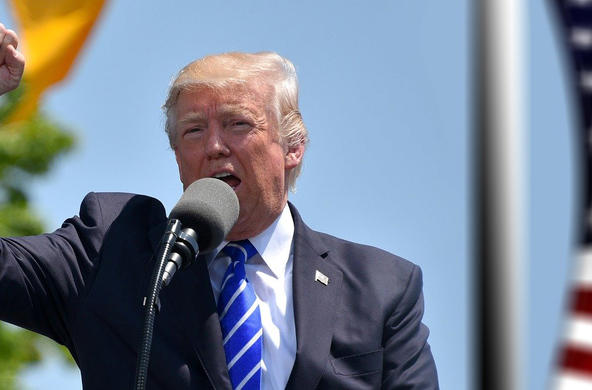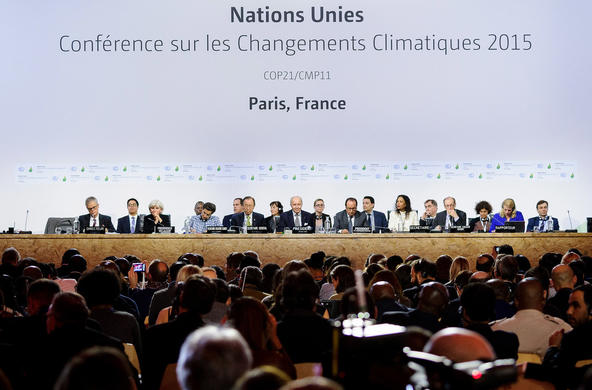The letter below was sent to 10 U.S. senators who are working on the Energy Policy Modernization Act. The Senate has accepted an amendment to the act which would legally designate forest biomass to be “carbon neutral.” This means that U.S. Federal agencies would be required to assume that burning wood (instead of coal) to generate electricity emits no greenhouse gases to the atmosphere, even though this is not the case.
February 22, 2016
Dear Majority Leader Mitch McConnell, Minority Leader Harry Reid, Chairwoman Lisa Murkowski, and Ranking Member Maria Cantwell:
We are 65 research scientists and practitioners who study energy, soils, forested and wetland ecosystems and climate change. We are writing in our individual capacities to express our concern over the implications of a “forest biomass carbon neutrality” Senate Amendment 3140 to the Energy Policy Modernization Act that was recently accepted by the US Senate.
This well-intentioned legislation, which claims to address climate change, would in fact promote deforestation in the U.S. and elsewhere and make climate change much worse.
The amendment would require all federal departments and agencies to promote consistent policies that “reflect the carbon neutrality of forest bioenergy and recognize biomass as a renewable energy source.” Mandating that there are no carbon dioxide emissions from burning wood from forests to produce energy does not make it so in fact.
The consequence of the amendment is to encourage a shift to forest biofuels in the form of pellets and wood chips to replace coal in the generation of electricity. Wood burning power plants are becoming more numerous in the United States and in the European Union. The US Department of Commerce and the US Forest Service are promoting expanded export of American wood pellets for this purpose to Europe and to Asia. Burning any carbon containing substance whether biomass or fossil fuels releases carbon dioxide into the atmosphere. Burning forest biomass to make electricity releases substantially more carbon dioxide per unit of electricity than does coal. Removing the carbon dioxide released from burning wood through new tree growth requires many decades to a century, and not all trees reach maturity because of drought, fire, insects or land use conversion. All the while the added carbon dioxide is in the atmosphere trapping heat. Right now, large areas of American forests including old growth trees are being cleared for pellets that are shipped to Europe and burned to produce electricity that is counted there as zero carbon. There is no requirement in the amendment that trees used for bioenergy be replaced. International obligations require the United States to account for bioenergy emissions from either the energy sector or as land-use change.
While forest biomass energy may be renewable over the long-term, it is not a low-carbon source of energy like solar panels. Using the same amount of land area, solar panels produce up to 80-times as much electricity as wood burning with no emissions at all. Yet with this amendment, both might receive the same subsidy under the Act. Furthermore, fossil fuel emissions associated with producing bioenergy (harvesting, chipping, drying, pelletizing and transporting) are equivalent to 20-25% of direct emissions, and under this legislation these emissions are unaccounted for.
Forest bioenergy as currently produced also competes with land for other forest products including timber, paper and agriculture. Promoting forest biomass therefore encourages additional deforestation.
Granting carbon amnesty to forest biomass burning for energy could lead to significant depletion of US forests. The potential implications of declaring carbon neutrality for forest biofuels are great because even small quantities of bioenergy require large quantities of wood. The US Energy Information Agency estimates that for each 1% added to current US electricity production from forest biomass an additional 18% increase in US forest harvest is required. This policy would also encourage the destruction of forests in developing countries that would see the US as an export market. This would undermine international attempts to protect tropical forests in these countries through the programs agreed to in Paris.
This amendment puts forest carbon in the atmosphere contributing to climate change instead of keeping it in living, productive forests that provide multiple benefits of water and wetland protection, flood control, soils protection, wildlife habitat, improved air quality and recreational benefits for hunters and all who enjoy being in the great out-of-doors. Legislating scientific facts is never a good idea, but is especially bad when the “facts” are incorrect. We urge you and other members of the Senate to reconsider this well-intentioned legislation and eliminate the misrepresentation that forest bioenergy is carbon-neutral.
We respectfully request an opportunity to inform you and other Senators of the scientific evidence for the appropriate accounting of forest bioenergy emissions. You could perform a great service by proposing and enacting legislation that effectively addresses climate change by enhancing the capacity of forests to reduce the amount of carbon dioxide entering the atmosphere. Any number of us would be willing to testify or to assist you and your staff in meeting the climate challenge with scientifically sound actions.
Sincerely,
Philip B. Duffy, Ph.D. President and Executive Director Woods Hole Research Center pduffy@whrc.org 508-444-1504
Prof. Emeritus William R. Moomaw, Ph.D., Co-Director Global Development and Environment Institute, Tufts University william.moomaw@tufts.edu 617-335-3994
William Schlesinger, Ph.D., President Emeritus, Cary Institute schlesingerw@caryinstitute.org
cc Olivia Kurtz, Senator Collins’ Energy legislative Council, James Springer, Senator King’s Energy legislative Council, Anne Knapke, Senator Klobuchar’s Energy legislative Council and Blaise Sheriden, Senator Franken’s Legislative Council
Professor Air Quality
Professor Environmental Technology
North Carolina State University
Loretta Battaglia, Ph.D.
Secretary General, Society of Wetland Scientists
Associate Professor of Wetland Ecology
Southern Illinois University
Mary S. Booth, Ph.D.
Director
Partnership for Policy Integrity
Jonah Busch, Ph.D.
Senior Fellow, Center for Global Development
Washington, DC.
Ken Caldeira, Ph.D.
Senior Scientist
Department of Global Ecology
Carnegie Institution for Science
Eric Chivian, M.D.
Founder and Former Director
The Center for Health and the Global Environment
Harvard Medical School
James Clark, Ph.D.
Nicholas School of the Environment
Duke University
Jeffrey Corbin, Ph.D.
Associate Professor
Union College
Eric A. Davidson, Ph.D.
Professor and Director Appalachian Laboratory
University of Maryland Center for
Environmental Science
Steven J. Davis, Ph.D.
Assistant Professor
Dept. of Earth System Science
University of California, Irvine
Saara J. DeWalt, Ph.D.
Associate Professor
Clemson University
David Foster, Ph.D.
Director, Harvard Forest
Harvard University
Peter Frumhoff, Ph.D.
Director of Science and Policy
Union of Concerned Scientists
James Galloway, Ph.D.
Sidman P. Poole Professor
Department of Environmental Sciences
University of Virginia
Scott Goetz, Ph.D.
Deputy Director and Senior Scientist
Woods Hole Research Center
Mark E. Harmon, Ph.D.
Richardson Chair and Professor
Oregon State University
Sarah Hobbie, Ph.D.
Professor, Department of Ecology, Evolution and Behavior
University of Minnesota
Richard A. Houghton, Ph.D.
Senior Scientist and George M. Woodwell Chair for Global Ecology
Woods Hole Research Center
Robert M. Hughes,
President, International Fisheries Section
American Fisheries Society
Deborah Lawrence, Ph.D.
Environmental Sciences
University of Virginia
Gene E. Likens, Ph.D.
Distinguished Research Professor
University of Connecticut
Special Advisor to the University President on Environmental Affairs
Cary Institute of Ecosystem Studies
Founding Director and President Emeritus
Richard N. Mack, Ph.D.
Professor Emeritus
School of Biological Sciences
Washington State University
Jerry Melillo, Ph.D.
Distinguished Scientist
The Ecosystems Center
Marine Biological laboratory
Susan Natali, Ph.D.
Associate Scientist
Woods Hole Research Center
James E. Perry, Ph.D., PWS
Immediate Past President, Society of Wetland Scientists
Professor of Marine Science
Virginia Institute of Marine Science
College of William and Mary
Jennifer Powers, Ph.D.
Associate Professor
Dept. of Ecology, Evolution, and Behavior
University of Minnesota
Jonathan Sanderman, Ph.D.
Associate Scientist
Woods Hole Research Center
Herman H. Shugart, Ph.D.
W.W. Corcoran Professor
Department of Environmental Sciences
University of Virginia
James R. Strittholt, Ph.D.
President/Executive Director
Conservation Biology Institute
Richard H. Waring, Ph.D.
O.S.U. Distinguished Professor Emeritus of Forest Ecosystems
Oregon State University
Matt R. Whiles, Ph.D.
Professor of Zoology
President, Society for Freshwater Science
Director, SIU Center for Ecology
Interim Director, Cooperative Wildlife Research Laboratory
Southern Illinois University
George M. Woodwell, Ph.D.
Founder
Woods Hole Research Center
Samuel Fessenden Professor of Biology
Williams College
Matthew Berman, Ph.D.
Professor of Economics
University of Alaska Anchorage
Mark Bradford, Ph.D.
Associate Professor of Terrestrial Ecosystem Ecology
Yale University
Robert Cabin, Ph.D.
Professor of Ecology and Environmental Science
Brevard College
Julia Cherry, Ph.D.
Treasurer, Society of Wetland Scientists
Associate Professor of Interdisciplinary Sciences and Wetland Ecology
University of Alabama
Norm L. Christensen, Ph.D.
Professor Emeritus and Founding Dean
Nicholas School of the Environment
Duke University
Steve Colt, Ph.D.
Professor of Economics
University of Alaska Anchorage
Gretchen C. Daily, Ph.D.
Bing Professor of Environmental Science
Stanford University
Gillian T. Davies, M.E.S., PWS,
Registered Soil Scientist, NHCWS
President Elect, Society of Wetland Scientists
David Dethier, Ph.D.
Edward Brust Professor of Geology and
Mineralogy
Department of Geosciences
Williams College
Aaron M. Ellison, Ph.D.
Senior Research Fellow in Ecology, Harvard Forest
Harvard University
Andrew J. Friedland, Ph.D.
Richard and Jane Pearl Professor of Environmental Studies
Adjunct Professor of Biological Sciences and Earth Sciences
Dartmouth College
Paul W. Gabrielson, Ph.D.
President, Phycological Society of America
Adjunct Assistant Professor of Biology
University of North Carolina, Chapel Hill
Andrew George, Ph.D.
Community Engagement Research Associate
University of North Carolina at Chapel Hill
Matthew C. Hansen, Ph.D.
Professor
Department of Geographical Sciences
University of Maryland
John Harte, Ph.D.
Professor of Ecosystem Sciences
ERG/ESPM
University of California at Berkeley
R. Max Holmes, Ph.D.
Senior Scientist
Woods Hole Research Center
Robert W. Howarth, Ph.D.
David R. Atkinson Professor of Ecology and Environmental Biology
Cornell University
Editor-in-Chief, Limnology & Oceanography
Founding Editor, Biogeochemistry
Malcolm L. Hunter, Jr, Ph.D.
Professor of Wildlife Ecology
Libra Professor of Conservation Biology
University of Maine, Orono
John Lichter, Ph.D.
Professor of Biology and Environmental Studies
Bowdoin College
Thomas Lovejoy, Ph.D.
Senior Fellow, United Nations Foundation
Professor, Environmental Science and Policy
George Mason University
James McCarthy, Ph.D.
Alexander Agassiz Professor of Biological Oceanography
Department of Earth and Planetary Sciences and
Department of Organismic and Evolutionary Biology
Harvard University
Jacqueline Mohan, Ph.D.
Associate Professor
Terrestrial Ecosystem Ecology & Biogeochemistry
University of Georgia
Neil Pederson, Ph.D.
Senior Ecologist, Harvard Forest
Harvard University
Kimberli J. Ponzio, M.S., PWS
President, Society of Wetland Scientists
G. Philip Robertson, Ph.D.
University Distinguished Professor
Dept. of Plant, Soil, and Microbial Sciences
Michigan State University
Timothy D. Searchinger, J.D.
Research Scholar
Woodrow Wilson School
Science, Technology and Environmental Program
Princeton University
Miles Silman, Ph.D.
Andrew Sabin Professor of Conservation Biology
Wake Forest University
Richard Thomas, Ph.D.
Professor and Chair of Biology
West Virginia University
Alan S. Weakley, Ph.D.
Adjunct Associate Professor
Director, UNC Herbarium
Herb Wilson, Ph.D.
Arey Professor of the Biosciences
Department of Biology
Colby College
Societies
Phycological Society of America
Paul W. Gabrielson, Ph.D., President
Society of Wetland Scientists,
Kimberli J. Ponzio, M.S., PWS, President
Society for Freshwater Science
Matt R. Whiles, Ph.D., President






